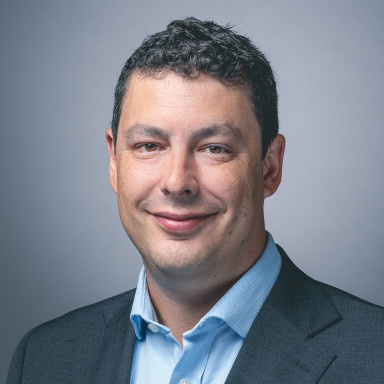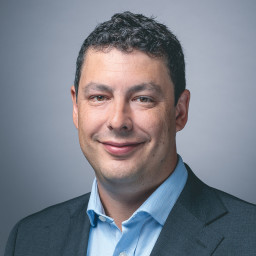Gregory Herbert joined EdenTree in October 2022 and took over as lead manager of the fund in March 2023
Responsible investment screens were integrated into the fund’s investment process in 2021.
The fund continues to combine shares, bonds, infrastructure and cash to give it the potential to deliver healthy levels of income alongside long-term growth
The fund doesn’t feature on our Wealth Shortlist of funds chosen by our analysts for their long-term performance potential
How it fits in a portfolio
The EdenTree Responsible and Sustainable Managed Income fund aims to pay a higher income than many other funds. It mainly invests in shares which offer the potential to generate an income and growth over the long term.
The rest of the fund is invested in bonds, infrastructure and cash. Some investments in bonds and cash provide diversification and could reduce the volatility that normally comes with only investing in shares. Exposure to infrastructure could help provide some shelter against increasing inflation, though there is no guarantee.
We think the fund could be used in a portfolio focused on trying to achieve an income, alongside some capital growth. It could also provide some diversification alongside equity funds in a more adventurous income-focused portfolio. The managers adopt a very sustainably led approach, which means this fund could be suitable as part of a responsibly invested portfolio.
Manager
Gregory Herbert took over as lead manager of the fund on 1 March 2023, having joined EdenTree during 2022. He’s joined by co-manager Michael Sheehan. Herbert has overall responsibility for the fund, with Sheehan having most input into the bond part of the fund.
The pair took over from Chris Hiorns, who had managed the fund since November 2020 and remains at EdenTree.
Herbert joined the business from Jupiter, where he had worked since 2005. During his time at Jupiter, he was a manager of European, North American and Global equity income funds, so has experience of investing for income.
Herbert has since been promoted to Head of UK Equities and has taken on management of another fund at EdenTree, the Responsible and Sustainable UK Equity fund. There’s a lot of crossover of holdings between the UK shares in this fund and those Herbert invests in within his Responsible and Sustainable UK Equity fund, although the UK Equity fund doesn’t have an income mandate.
Sheehan joined from abrdn in 2021 and is part of the fixed income team at EdenTree. He’s a named co-manager on some bond strategies such as the Global Impact Bond fund. At abrdn he helped to manage European investment grade credit funds.
Overall we think that the pair have enough time and resource to manage this fund.
Process
At the end of March 2024, the fund had 76.8% invested in shares, 21.9% in bonds and 1.3% in cash. This compares to 76.7%, 17.7% and 5.6% respectively at the end of March 2023. The biggest change over the last 12 months has been to reduce cash in favour of bonds. This reflects the higher yields available on bonds as well as the view that the interest rate rising cycle has come to an end.
The amount invested in each area can change over time though, depending on where the managers see the most opportunity. More will be invested in shares when the outlook for companies to grow profits and dividends is good. But when it's less certain, bonds will feature more. Bonds can offer an attractive income and over the long term their prices haven't tended to rise and fall as much as share prices.
Herbert likes to break his company share investments into different baskets, to reflect the different types of potential return over time. The main three buckets are: dividend growth, capital preservers and value.
Dividend growth companies are those who may not be paying a high dividend at the moment, but have potential to increase their dividend over time. Companies that increase their dividend over time can also benefit from share price increases too. Capital preservers are usually more mature businesses that pay a higher dividend, and this is expected by shareholders to be a meaningful part of the overall return from investing in the shares. Value companies are those where the share price may have fallen for different reasons, but Herbert thinks there is potential for this to recover.
The blend of these three buckets could result in smoother returns over time rather than focusing on any one of those areas, but there are no guarantees. Over the 12 months to the end of March, Herbert has reduced the amount invested in the value bucket and increased the amount in the dividend growth bucket. He has done this because he wanted to reduce the large bias towards the value bucket that he inherited when he took over managing the fund.
The fund can invest in emerging markets, which increases risk if used.
Culture
Collaboration is an important part of EdenTree's culture. Based in their City of London office, the investment team all work around the same desk and are encouraged to share investment thoughts and ideas, whilst also challenging others. They're independent thinkers and aren't afraid to take a view that's different from other investors.
We like that Herbert has relatively limited fund manager responsibilities at EdenTree, with just two funds in his name. This means he is able to focus his time on both funds. While Sheehan has other fund management responsibilities, there is crossover between the bonds held in this fund and the bonds he holds in his other fund, making it easier to manage.
ESG Integration
Historically, this fund didn’t apply the same screening process as other EdenTree funds, but this changed in November 2021.
EdenTree is widely regarded as a leader in responsible investment, which is impressive given the firm’s relatively small size. ESG factors are considered by all fund managers, who work closely with the firm’s Responsible Investment team to generate ideas, analyse opportunities, create diversified portfolios and undertake ongoing evaluation.
Most of the firm’s funds fall within their ‘Responsible and Sustainable’ range, which screen out companies deemed harmful to society, and consider how each company’s products and services contribute positively to the environment and society. These funds and their investment processes are overseen by an independent panel of responsible and sustainable investing experts, who are also on hand to provide advice on key ESG issues where necessary.
The team at EdenTree seeks to vote at the meetings of all UK companies they hold shares in and has appointed a third-party advisory service to take care of overseas voting. The team tends to vote in support of company management except where proposals are in breach of UK corporate governance best practice or are viewed as not being in the interests of shareholders.
They engage with companies where existing corporate governance arrangements or management proposals cause concern. A quarterly Global Corporate Governance report outlines the voting activity undertaken by the team and a rationale is provided for votes against management and abstentions. The team also produces a Responsible Investment Activity report, which includes information on their engagement activity, and a wide range of ESG and responsible investing insight articles, all available via their website.
Cost
This fund has an ongoing annual charge of 0.94%, but we've secured HL clients an ongoing saving of 0.43%. This means you pay a net ongoing charge of 0.51%. This discount is achieved through a loyalty bonus, which could be subject to tax if held outside of an ISA or SIPP. Our platform charge of up to 0.45% per annum also applies, except in the HL Junior ISA, where no platform fee applies.
Please note the fund's charges can be taken from capital. This increases the yield, but reduces the potential for capital growth.
Performance
Producing a higher income is the fund’s priority, but it also focuses on capital growth, and preserving capital when the share market is falling. Over the 13 months Gregory has managed the fund, it has returned 2.83%* compared to the IA Mixed Investment 40-85% sector average return of 9.24%. This is a very short period of time to consider performance over, particularly following a change in management team. Past performance isn’t a guide to the future.
Over the 12 months to end of March 2024, the fund also underperformed the sector, returning 6.89% compared with 10.14%. While the fund is part of this sector, it is biased towards UK and European shares. It also has an income mandate and invests with a significant sustainability overlay. All of these factors mean that this fund is likely to perform differently to the IA sector at times.
Investments in shares and bonds added value over the 12 months. Shares from Germany, France and Italy in particular added positively. These were offset by investments in the US, Switzerland and Denmark which provided negative returns over the period. At a stock specific level, investments in Talanx and Schneider Electric both performed positively for the fund, while Sanofi and HSBC lost value.
One area which posed a particular challenge over the 12 months were the investments in infrastructure companies, many of which are investment trusts. This area of the market has been hurt following the steep increase in interest rates, which has meant that bonds now provide similar or better levels of income. This has resulted in a notable sell off within the infrastructure investment trust part of the market.
The fund had an historic yield of 4.68% as at March 2024. Yields and income aren’t guaranteed and can change over time.
Annual percentage growth
31/03/2019 To 31/03/2020 | 31/03/2020 To 31/03/2021 | 31/03/2021 To 31/03/2022 | 31/03/2022 To 31/03/2023 | 31/03/2023 To 31/03/2024 | |
|---|---|---|---|---|---|
EdenTree Responsible and Sustainable Managed Income | -14.49% | 27.25% | 8.16% | -3.28% | 6.89% |
IA Mixed Investment 40-85% | -8.00% | 26.54% | 5.42% | -4.58% | 10.14% |


